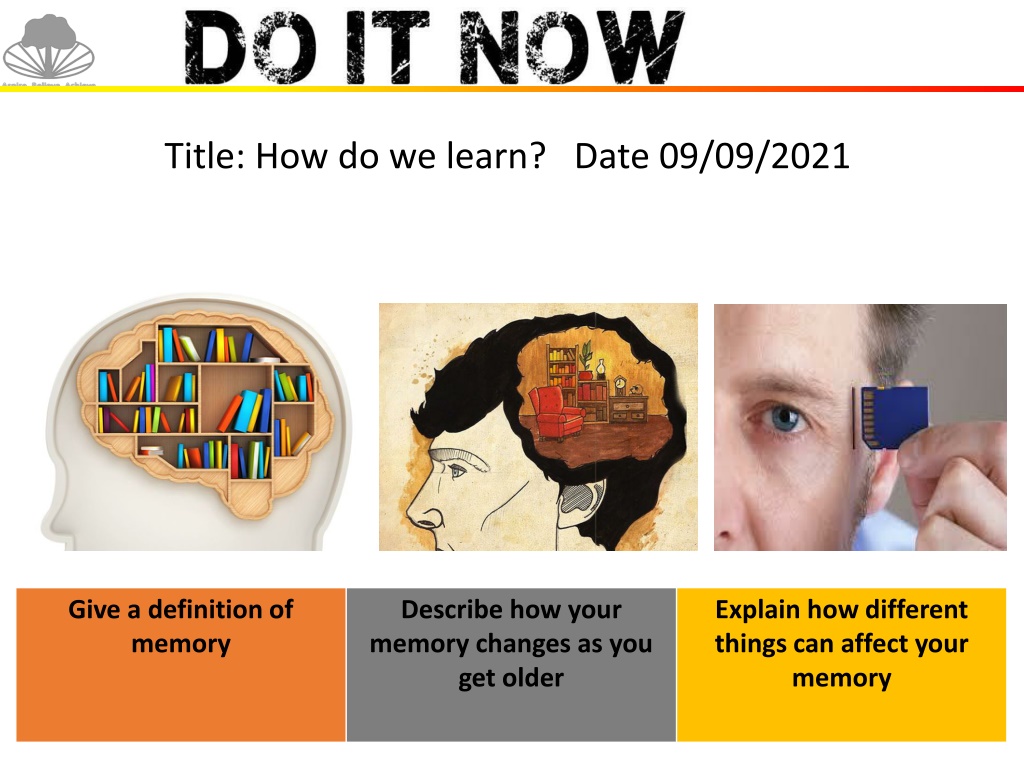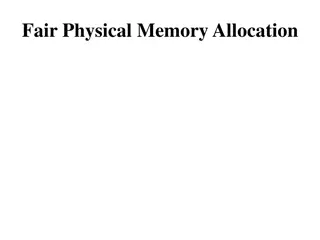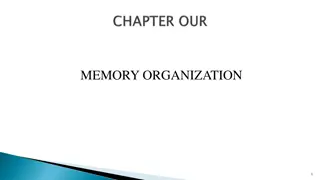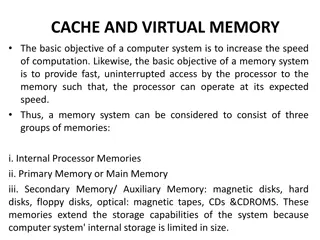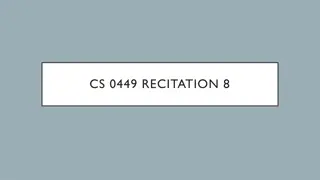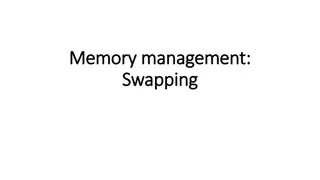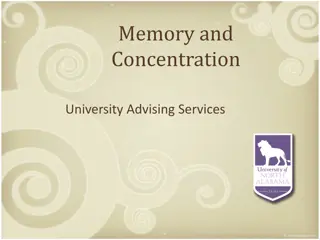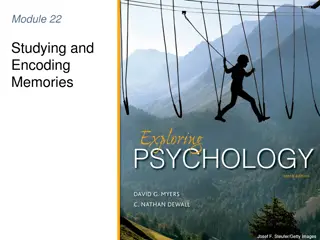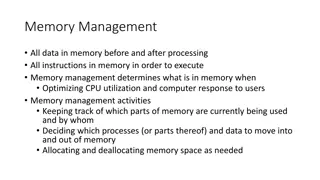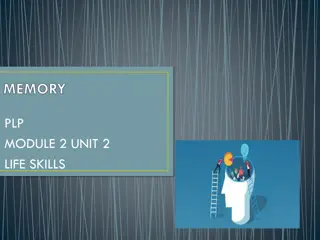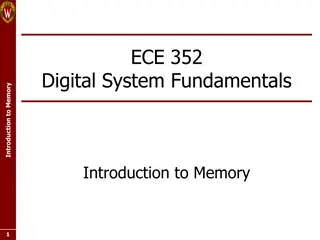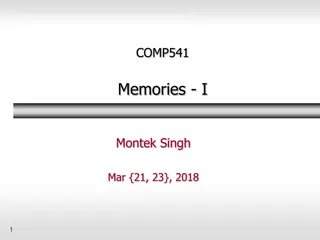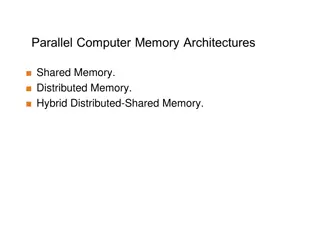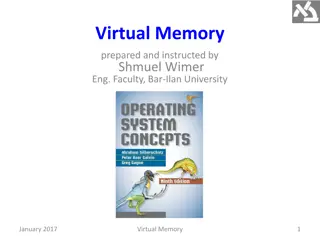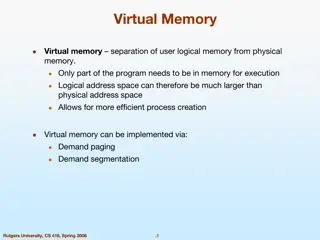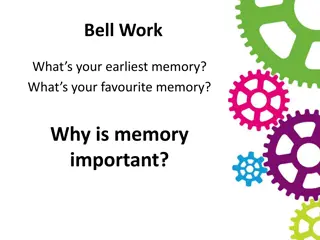Understanding Memory: Definition, Changes Over Time, and Improvement Techniques
Memory is a crucial aspect of learning, but it changes as we age. Various factors can affect memory, and it's essential to understand how to protect and enhance it. This article delves into the definition of memory, how it evolves with age, and strategies to boost memory retention and recall.
Download Presentation

Please find below an Image/Link to download the presentation.
The content on the website is provided AS IS for your information and personal use only. It may not be sold, licensed, or shared on other websites without obtaining consent from the author. Download presentation by click this link. If you encounter any issues during the download, it is possible that the publisher has removed the file from their server.
E N D
Presentation Transcript
Title: How do we learn? Date 09/09/2021 Give a definition of memory Describe how your memory changes as you get older Explain how different things can affect your memory
Prior Learning Mental Health Wellbeing Sleep Diet Thinking Ahead: Living in the wider world- my qualities Today s Lesson: To consider why memory is so important to our success To know how our memory works To establish ways to improve memory KEYWORDS Memory Recall Working memory Long term memory Encode Retrieval Storage Biblioklept CC: science, psychology, English Careers: social worker, counsellor, nurse, emergency services
Why is memory important? What happens to our memory over time? How can you protect your memory?
As soon as the video clip finishes, write down all the items from the conveyor belt that you can remember.
Here are the items on the conveyor belt! Camera Diamond tiara Paint Shampoo Tea Bread Candle Kettle Violin Computer Mic Birdbox Mobile DVD Bible Cuddly toy Rabbit How can you organise this information so that it s more easy to recall? Had you counted the items so you knew how many you were aiming for? How can you make links between the words so that they are easier to recall? Group the words into similar meanings/spellings/functions. Now retest yourself how many can you recall now that you have given meaning to the words?
Draw and label a diagram of the brain in your booklets. As you do so use different colours/images/handwriting so that different information is highlighted in different ways. You will be asked to recall some of this information shortly. Think about what might be most hard to remember and how you will have to remember this in a different way. You have 3 minutes to MEMORISE the 6 words linked to how we remember. Frontal lobe Temporal lobe Brain stem Parietal lobe Occipital lob Cerebellum As you do this, think about HOW you remember.
Task 1) Match the correct term to the correct definition. 2) Write them down in the order in which they occur when we are learning. 3) How do we encode memories so that they matter to us? 4) How can we get better at retrieving memories? Terminology ENCODE Definition How we access old memories when we need them this strengthens neural pathways in the brain. How memory is kept in the brain. RETRIEVAL When the brain registers the memory and attaches meaning/significance to the memory. STORAGE
The multi storage theory of memory According to this theory, how does our memory work? How long do our sense register information for? How long can this become if information is attended to? How can we improve our memory to make it more effective?
Define it: Word: Write a sentence of your own that uses the word biblioklept. Someone who steals books Biblioklept (tier 2) Write your own definition of the word biblioklept. Link it: Kleptomaniac, thief, reader Which subjects or topics will this word be relevant to? Use it: Deconstruct it: The man was a biblioklept, as he ran out the shop with the book Deriving from French Biblio book and Latin Klept meaning theif
We will now show that rehearsal can improve long term memory. 1. Give the word meaning. What does BIBLIO mean? (think of French) What does KLEPT mean? (think of Kleptomaniac) 3. Now access your kinaesthetic memory. Lift your hand in the air and spelling the word in the air. Now with your toe trace the word on the floor. 2. Now access your visual memory. Write the word down 10 times as fast as you can. 4. Now access your auditory memory. Say the word really quietly, in a silly voice, shout it out, sing it. What does BIBLIOKLEPT MEAN?
In green pen write down 5 ways you can improve your memory storage, encoding and retrieval. HP if you can correctly write the definition of BIBLIOKLEPT.
Useful links https://www.thebraincharity.org.uk https://www.mind.org.uk
